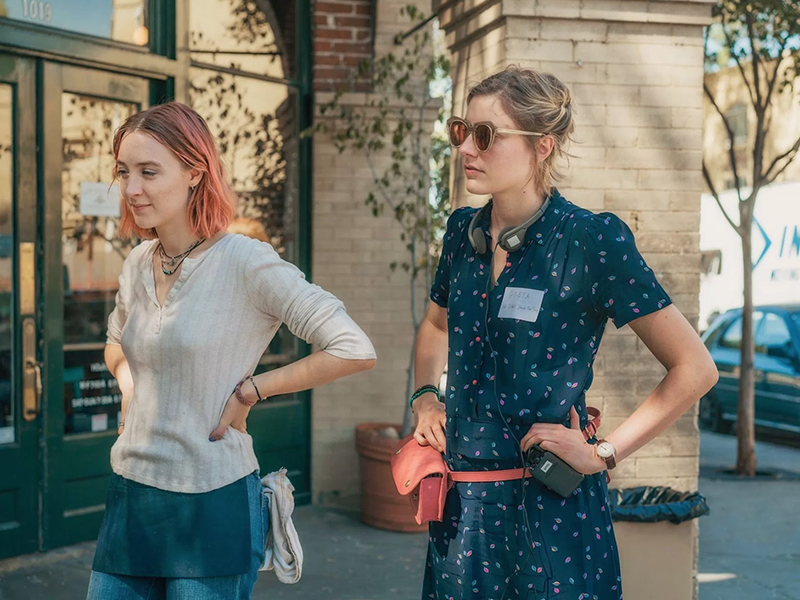By Christine Smallwood
Greta Gerwig has acted in 25 films and co-written five, but “Lady Bird,” her first solo directorial project, is the most unadulterated distillation of her sensibility to date. The title character is a high-school senior, played with winning naturalness by Saoirse Ronan, who lives in Sacramento and attends an all-girls Catholic school. She was born Christine, but demands to be called by the name she has given herself — as if she were a pop star, or being constantly confirmed in the faith.
***
“Lady Bird” is remarkable for what doesn’t happen. No one dies. No one overdoses. Conflicts are reconciled. The film is ostensibly about a young girl’s ambition, but the mood is one of poignant loss. “There is a certain vividness in worlds that are coming to an end,” Gerwig wrote in the production notes. “It is something beautiful that you never appreciated and ends just as you come to understand it.” Her characters are always preternaturally nostalgic, able to look back on recent hurts with the bittersweet regard that it takes more rancorous humans a lifetime to achieve.
***
There are no jerks or bullies in “Lady Bird,” no one who intentionally manipulates or abuses, no one who hates or is hateable, no one who holds a grudge. All the characters are doing their best — it’s just nice to know them. You can’t accuse Gerwig of a lack of seriousness; her conversation is peppered with references to George Eliot, Elena Ferrante, Maggie Nelson, Simone Weil, Milton and Kierkegaard. But the way she distributes sympathy has an undeniably magical effect. The result is delightful and a little bit romantic — delightful, perhaps, because it is romantic, showing life as it should be, or could be.
“I have a deep need to take care of my characters,” she said to me at breakfast. “It’s not that I don’t want to go down the dark avenues — I want to hold their hands down the dark avenues. I want to walk with them while they go there and give them the dignity of representing it honestly, and finding the thing that is grace-filled.”
***
Still, only a person who liked high school could have written this movie. And Gerwig liked high school. There were the usual cliques and hierarchies, but because it was a Catholic school, the focus was on being a good citizen of the community and using your talents for a higher purpose. She refers to the nuns who taught her as “really groovy.” She admits to “some teenage anger” and says that her fights with her mother were “epic,” but “for me, epic fighting never spelled lack of love.”
To read full New York Times article, click HERE

